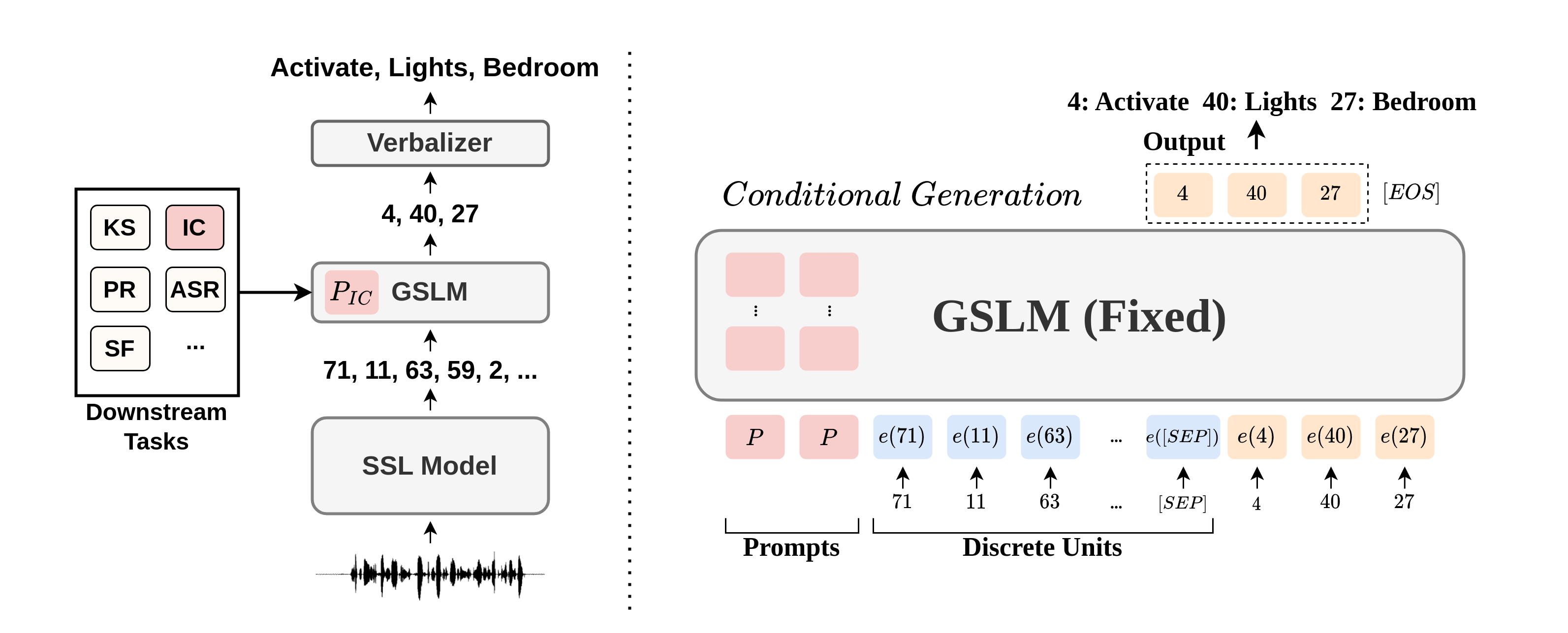
SpeechPrompt v1
An Exploration of Prompt Tuning on Generative Spoken Language Model for Speech Processing Tasks
Recently, prompting in Natural Language Processing (NLP) has been found to be an
efficient technique to leverage pre-trained language models (LMs). Specifically, prompt
tuning optimizes a limited number of task-specific parameters with a fixed pre-trained
model; as a result, only a small set of parameters is needed to be stored for each task.
Prompt tuning improves computation and memory efficiency by leveraging the pre-trained
LM's prediction ability. Nevertheless, such a paradigm is little studied in the speech
community.
We report in this paper the first exploration of the prompt tuning paradigm for speech
processing tasks based on Generative Spoken Language Model (GSLM). Experiment results
show that the prompt tuning technique achieves competitive performance in speech
classification tasks with fewer trainable parameters than fine-tuning specialized
downstream models. We further study the technique in challenging sequence generation
tasks. Prompt tuning also demonstrates its potential, while the limitation and possible
research directions are discussed in this paper.
Citation
@inproceedings{DBLP:conf/interspeech/ChangT0L22,
author = {Kai{-}Wei Chang and
Wei{-}Cheng Tseng and
Shang{-}Wen Li and
Hung{-}yi Lee},
title = {An Exploration of Prompt Tuning on Generative Spoken Language Model
for Speech Processing Tasks},
booktitle = {{INTERSPEECH}},
pages = {5005--5009},
publisher = {{ISCA}},
year = {2022}
}